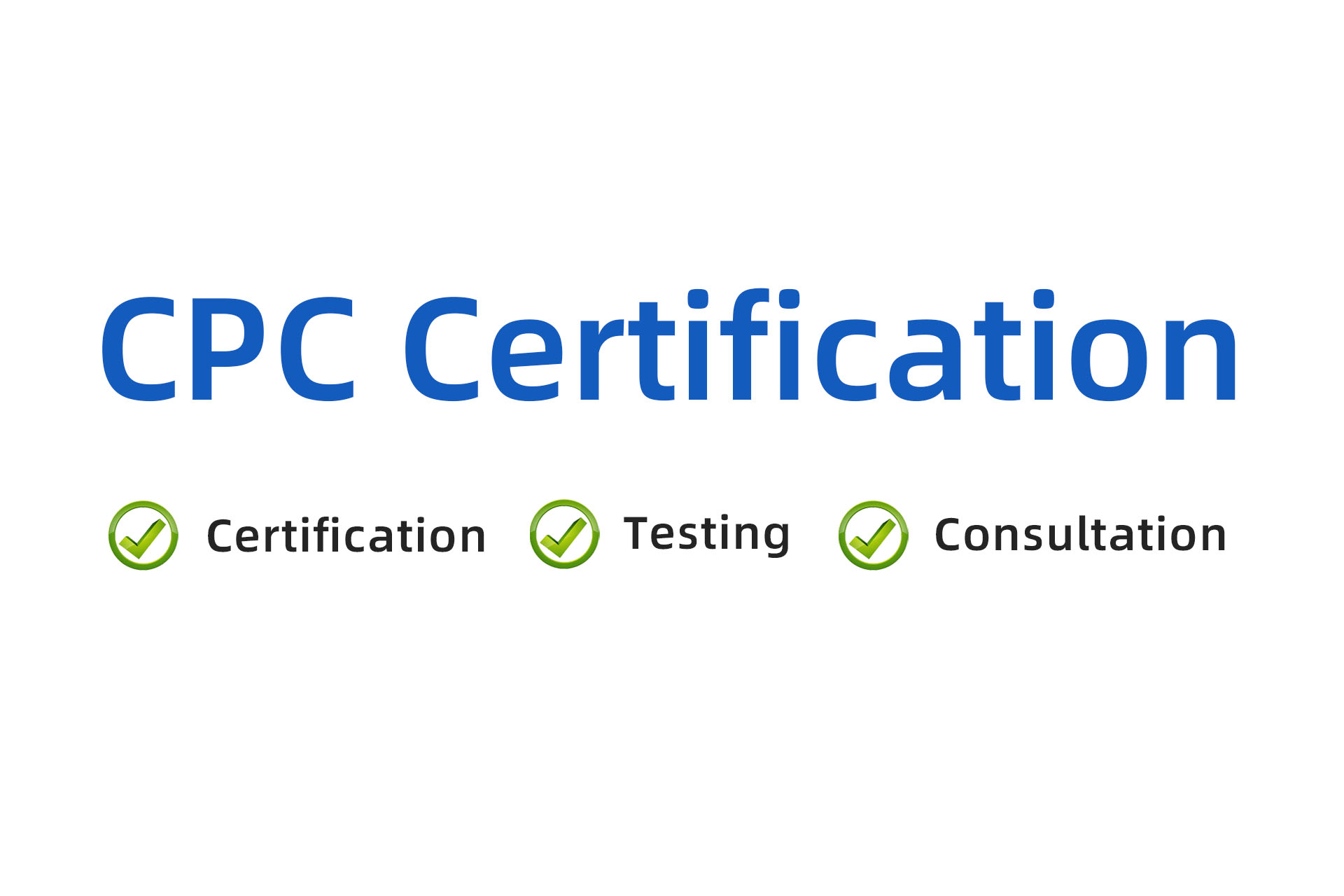
CPC certification (Children's Product Certificate) is a compulsory product certification system, which is mainly used to ensure the safety and compliance of children's products. It is suitable for all children aged 12 years and under as the primary target of production.

As a leader in the testing and certification industry, Tonggui Testing has built a mature service system through years of deep cultivation, forming significant competitive advantages. The company has gathered numerous professionals in the field of testing and certification. They not only have solid professional knowledge and are familiar with various testing standards and regulatory changes at home and abroad, but also have accumulated rich practical experience. They can quickly tailor accurate and efficient testing solutions for customers. In terms of hardware construction, Tonggui Testing continues to increase investment, introduce international cutting-edge testing equipment, and create a high standard and intelligent testing laboratory. From sample collection and analysis to data output, every link strictly follows international standards to ensure the accuracy and reliability of testing data. At the same time, Tonggui Testing always adheres to the customer-oriented service concept and has launched a one-stop service model. From customers' initial consultation, to the implementation of the testing process, to the acquisition of certification results, we accompany customers throughout the entire process, greatly saving customers' time and energy. With excellent service and good reputation, we have won widespread praise in the industry.
Introduction to CPC Certification Testing
Testing standards
CPC (Children's Product Certificate) certification, also known as the Children's Product Certificate, is a mandatory certification issued by the US Consumer Product Safety Commission (CPSC) for children's products. CPC certification requires a series of strict testing standards:
Toys: Toys must pass ASTM F963 standard testing, which sets strict requirements for the physical and mechanical properties, combustion performance, chemical properties, and other aspects of toys. In terms of physical and mechanical properties, toys should be tested for potential hazards such as small parts, sharp edges, etc. that may cause suffocation or injury to children; In terms of chemical properties, it is necessary to strictly control the content of heavy metals such as lead, mercury, cadmium, and harmful substances such as phthalates in toys, in order to prevent children from damaging their health due to exposure to harmful substances during play. In addition, toys also need to pass the testing for lead and phthalates in CPSIA.
Children's clothing: Children's clothing must meet the limit requirements for lead and phthalates in CPSIA, and pass the small parts swallowing test to prevent children from accidentally swallowing small parts on the clothing during wearing. Some children's pajamas also need to comply with the flame retardant standards of 16 CFR 1615/1616 to reduce the risk of injury to children due to clothing fires.
Children's Furniture: Children's furniture such as baby beds and high chairs must not only pass physical safety standards such as ASTM F1169 for baby beds and ASTM F404 for high chairs, but also be tested for harmful substance content to ensure the safety and stability of the product during use.
Applicable products
Toys: Various types of toys such as plush toys, plastic toys, and electric toys, as long as they are sold to children aged 12 and below, must pass CPC certification to ensure that the toys do not pose a safety threat to children during play.
Children's clothing: From baby jumpsuits to children's jackets, pants, and other types of children's clothing, CPC certification is required to ensure the safety of children's wear.
Children's furniture: baby beds, children's dining chairs, study tables and chairs, and other children's furniture must pass CPC certification before entering the US market to prevent harm to children due to furniture quality issues.
Tonggui Testing provides customers with professional CPC certification services: a professional technical team develops personalized testing plans based on the characteristics, raw material composition, and target market of customer products; During the testing process, we strictly follow the CPC certification standards and use advanced testing equipment to monitor the testing process in real time, ensuring the accuracy and repeatability of the testing data; After the testing is completed, provide customers with detailed and professional testing reports, and assist them in applying for certification to help them successfully obtain CPC certification.
Why choose general testing
Professional team empowerment: The professional team of Tonggui Testing has rich experience in the field of CPC certification testing and has a deep understanding of various standards and regulations. They can provide customers with comprehensive technical support and help them solve various problems encountered during the testing process.
Advanced equipment guarantee: The company is equipped with internationally leading testing equipment, which can not only simulate various complex testing scenarios to meet the testing needs of different products, but also improve testing efficiency, shorten testing cycles, and help customers quickly enter the US market.
One stop service experience: The one-stop service model of Tonggui Testing allows customers to enjoy convenient and efficient services from consultation to certification completion without having to rush between multiple links.
Good reputation witness: Over the years, Tonggui Testing has established a good reputation in the industry with professional services and high-quality testing results, and is a reliable partner for customers to conduct CPC certification testing.